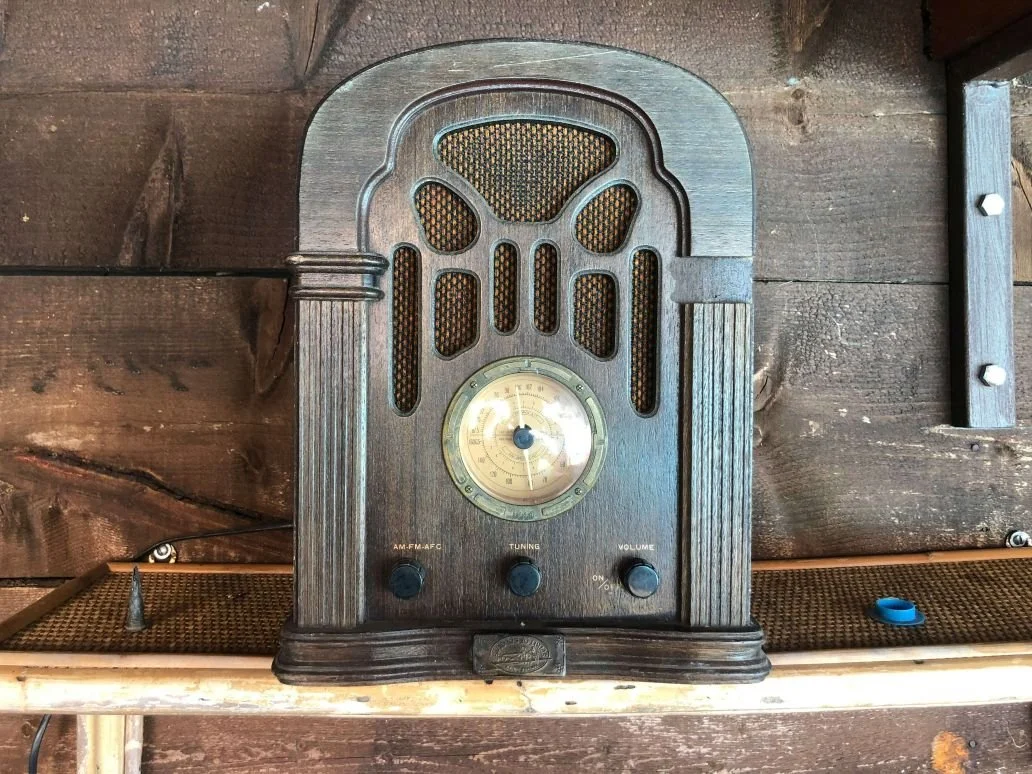Therapy for the Highly Sensitive Person in San Antonio
Embrace Your Sensitivity & Feel at Home in Your Mind & Body
Therapy for HSPs Who Feel & Think Deeply
You feel everything, all at once. It’s as though the world is turned up to max volume, and you didn’t get the remote.
You’re soaking up emotions, energy, expectation, like a human sponge that never got the chance to wring itself out. And it’s deeply draining.
You wonder: Why does life feel so much louder for me than it is for others? It’s not just you.
This experience is a form of sensory sensitivity that can leave your nervous system overstimulated and your energy depleted.
As a Highly Sensitive Person myself, I see you. I get you.
This is therapy for deep-feeling, deep-thinking people who’ve spent years navigating a world that often does feel too loud and too much.
It’s a space to land, exhale, and learn to embrace the way your nervous system uniquely experiences the world, through emotional regulation and self-acceptance, rather than self-criticism.
Your Sensitivity Speaks a Language Most People Can’t Hear or Speak
When you feel this much, it makes sense that the world often feels like too much.
You naturally feel tuned into the world in high-def-surround-sound.
A passing comment stays with you long after the conversation ends.
You walk into a room and instantly know how to read it before anyone else.
A song with those lyrics? You instantly know there might be tears and big emotions.
The glow of the morning sun. The way your friend’s eyes crinkle when they smile. The small, beautiful things that most people rush past. You feel them. Deeply.
And that’s your magic. But it can also feel like your nervous system is caught between hyperdrive and shutdown.
Too many people. Too much noise. Too many emails in your inbox.
You need time. Space. Quiet. Not because you’re too fragile but because your body needs restoration to function at its best.
You’re exquisitely tuned in to a world that often moves too fast and feels too loud. You are not too much. You’re just a person with a sensitive, responsive system that notices what most people miss.
If you identify as an HSP, you may also connect with experiences of Anxiety, Trauma, or Perfectionism that come with feeling and perceiving so deeply.
Wondering if You’re an HSP?
The term Highly Sensitive Person (HSP) comes from Dr. Elaine Aron’s research.
About 15-20% of people have Sensory Processing Sensitivity (SPS). Translation? Your nervous system processes everything: thoughts, feelings, experiences, way more deeply than most.
It’s not a diagnosis. It’s not a flaw. It’s a trait. One that gives you inner wisdom. But sometimes it just feels like a lot.
You may be an HSP if:
You feel everything intensely. Joy, sadness, that one video about the baby cow reunited with its mom. And, just that easily tears well up.
Bright lights and loud noises = overstimulated.
You pick up on other people’s moods faster than most.
After socializing you need silence and time to yourself to recharge.
Change stresses you. Transitions take time. And you feel anxious when rushed.
Nature, music, art, and quiet moments feed your soul.
You notice everything. The details, the subtleties, the mood shifts. You’re the first to ask: Are you okay?
HSPs aren’t just introverted or females. HSPs can be: extroverted, introverted, men or women.
How Being an HSP Can Affect Your Relationships
In your personal life, you’re the helper. The fixer. The one who says yes when you really want to say: I just need a break that doesn’t involve taking care of anyone else.
You worry about being too much or too sensitive. So, you bite your tongue, suppress your needs, and keep giving, until you’re drained and disconnected from yourself.
It’s hard to hold boundaries when your empathy runs deep, or to believe you deserve emotional safety when your nervous system has learned that peace only comes from keeping everyone else calm or okay.
And somewhere deep down, you wonder what it would feel like to be seen. The real you, not just the version that’s always there for everyone else.
Therapy helps you begin to shift that pattern, to create connection without depletion, to stay grounded in yourself even when emotions run high.
It’s a space for relational healing, where you can explore closeness without overextending or absorbing, and learn that your sensitivity isn’t something to manage away.
It’s something to understand, hold with compassion, and most of all, trust.
Why the Highly Sensitive Person Sometimes Struggles at Work
At work, you pick up on the subtle cues that others miss: the tension in the room, the unspoken awkwardness, and the details that make all the difference.
But that gift comes with a cost.
➳ You often overanalyze.
➳ You triple-check your work.
➳ You take on way more than you have capacity for because you care.
➳ And when someone gives you feedback (even politely or seemingly helpful), it feels like your mind goes straight to feeling like you’re not good enough after all.
The pressure to perform in a fast, loud world is a lot. Even when you’re giving 110%.
How HSP Therapy Can Help
As a an attachment-focused, trauma-informed therapist and HSP myself, I bring both clinical tools and lived empathy to this work, drawing from advanced training in nervous system regulation and attachment-based therapy.
You’re already doing your best.
But that the over-giving, overthinking, overstimulating pace of life, isn’t sustainable.
And you don’t have to keep living this way. Highly Sensitive Person therapy with me is a place where you can be real and not have to explain why everything feels like a lot.
Here’s what we’ll work on:
Nervous system regulation - Learn how to calm your body and mind when the world overwhelms.
Break patterns of over-giving and over-functioning - Be kind and have boundaries.
Repairing attachment style patterns and reconnecting with your self-worth - Work through the stories that told you your sensitivity was a flaw.
Heal Unresolved Trauma - Because sometimes, that’s the undercurrent in the highly sensitive person.
Reframing your sensitivity as one of your greatest strengths, because it truly is.
No more seeing your sensitivity as a burden. It’s a gift and I can help you remember that.
You Deserve a Life That Feels Fulfilling & Balanced
Let’s work through the patterns that keep you locked into overdoing.
This is what can change:
Learn to stop carrying the weight of others’ emotions.
Rediscover the beauty in your sensitivity, not as something to fix but something to embrace.
Move from living on autopilot to living with intention, calm, and connection to who you truly are.
Being an HSP Doesn’t Mean You’re Destined for Overwhelm
It means you have a nervous system wired for depth, nuance, and connection. And with the right tools and support, that sensitivity:
Becomes your your light and your magic.
In HSP therapy, here’s what becomes possible:
Find balance and calm.
Feel grounded in a world that can be a lot.
Love yourself as fiercely as you love everyone else.
Step into your life with more joy, ease, and peace.
Your sensitivity is an asset, not a liability.
You can also read this blog post for more insight into the daily experience of highly sensitive people and ways to navigate the world with greater ease.
FAQ: Highly Sensitive Person Therapy
-
Being a Highly Sensitive Person (HSP) is a natural temperament trait, not a mental health diagnosis. Many HSPs simply process sensory and emotional input more deeply than others. For some, past trauma or attachment wounds can amplify sensitivity, making the world feel even more overwhelming.
This therapy together focuses on helping you lean into and honor your natural sensitivity while healing any unresolved trauma that might be adding extra weight.
-
Being an HSP means your nervous system is naturally wired to feel and process things more deeply than most. Borderline Personality Disorder, on the other hand, is a mental health diagnosis that involves intense struggles with self-image, mood, and relationships.
Sometimes, they can show up together. A person can be highly sensitive and have a diagnosis of BPD. But my specialty isn’t in working with BPD.
I’m here to help you understand and care for your sensitivity, heal attachment wounds, and work through any trauma that may make your emotions feel bigger and harder to hold alone.
-
HSP means your nervous system is more sensitive to stimuli and emotion. Bipolar Disorder is a mood disorder involving distinct episodes of mania and depression. You can be an HSP and not have a Bipolar diagnosis, and vice versa. I don’t treat Bipolar Disorder specifically, but if you’re highly sensitive and dealing with anxiety, attachment, or trauma, I can help you using therapies and techniques to feel calmer and more grounded.
-
Being a Highly Sensitive Person (HSP) and having a diagnosis of autism are not the same, though sometimes they can look similar from the outside. HSPs naturally process sensory and emotional input more deeply. It’s a temperament trait, not a diagnosis.
Autism is a neurodevelopmental disorder that affects social communication, sensory processing, and behavior in distinct ways. I don’t specialize in autism or ASD-specific therapy, but if you identify as highly sensitive and want support for anxiety, trauma, or attachment wounds, I’m here for you.
-
Being a Highly Sensitive Person (HSP) does not equal neurodivergent, but many people identify with the neurodivergent community because their nervous system works differently than the cultural “norm.”
Some HSPs also have a diagnosis of ADHD, Autism, or other forms of neurodivergence, while others don’t. In my work, I embrace your sensitivity as part of your unique wiring, and help you care for it with compassion, whether or not you identify as neurodivergent.
-
Sensitivity is usually there from the beginning; it’s not something you “catch” later on. Many people only recognize it as adults when they finally find language for why they’ve always felt a little more tuned-in than others.
If you’re feeling more sensitive after stress or trauma, we can explore what’s trait-based and what’s your nervous system asking for healing and rest.
-
Being highly sensitive is an inborn trait. It’s how your nervous system is wired from the start. Trauma or PTSD happen when your system experiences something overwhelming that leaves lasting effects. Many HSPs can carry unresolved trauma too, which can amplify sensitivity and make everyday stress and life feel even bigger.
In my practice, I help differentiate between the two, so you can feel better connected and more at home in your own mind and body.
-
Although some characteristics can look similar, they’re different. ADHD is a neurodevelopmental disorder that affects attention, impulsivity, and sometimes hyperactivity. Being a Highly Sensitive Person means your nervous system processes sensory input and emotions more deeply, but you can also have both occurring.
If you’re unsure, therapy can help you explore what’s really going on underneath the overwhelm.
Your Sensitivity Holds Insight, Not Inadequacy
You don’t have to keep feeling drained, overwhelmed, or like you’re carrying the weight of the world. Your sensitivity is not a flaw. It’s what makes you, you.
Ready to reconnect with your sensitivity and find your peace?
Let’s work together to work with your deep feeling and thinking nature while healing the patterns that keep you overwhelmed.
Schedule your complimentary phone consultation for Highly Sensitive Person therapy in San Antonio today.
➳ Prefer meeting online? I work with clients across Texas.

Ready to Get Started?
Let’s Work Together





